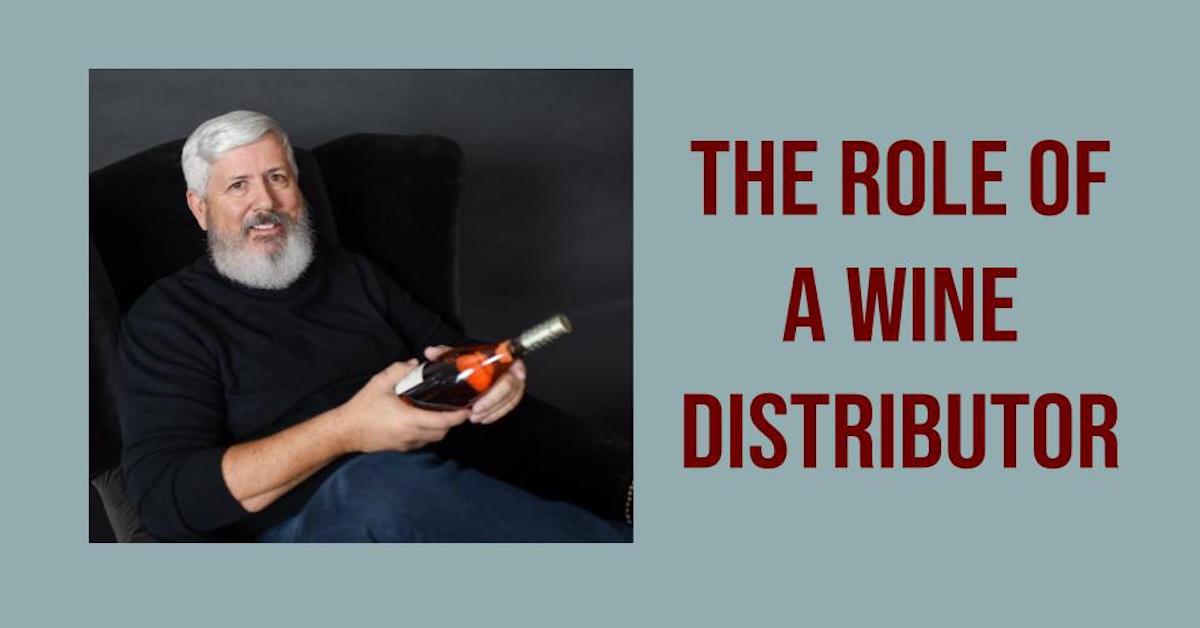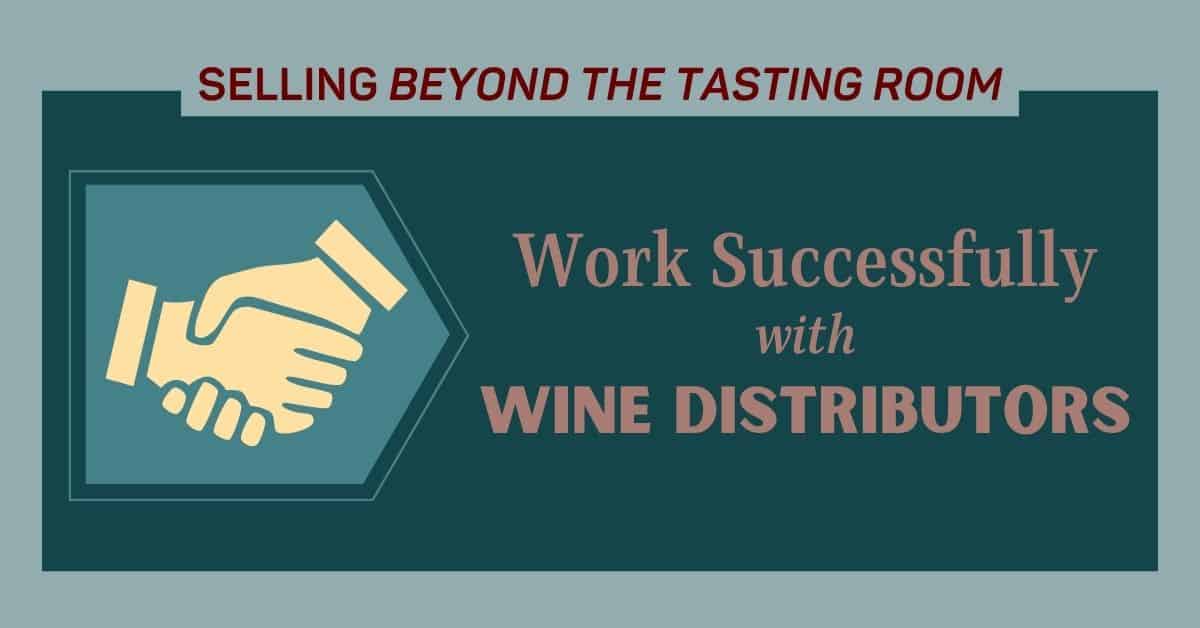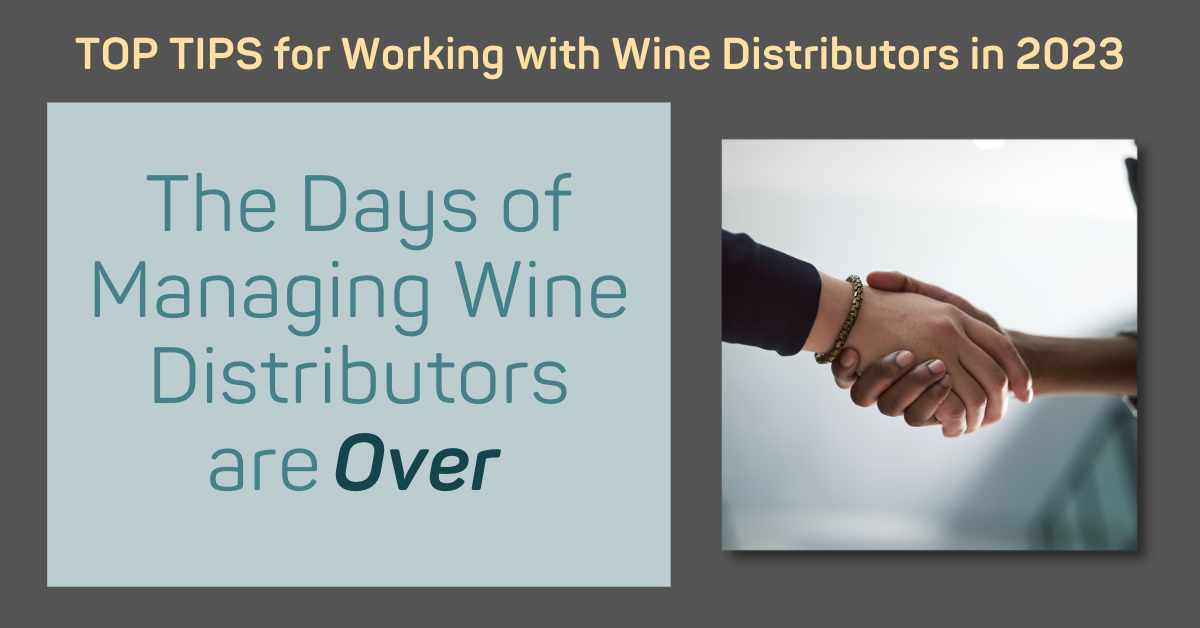The Role of a Wine Distributor (Video)
In this video, wine industry sales expert, Ben Salisbury, walks viewers through all aspects of a wine distributor's role in the US Market. The role...
Table of Contents
Working with wine distributors in 2023 is going to be very different from previous years. Just take a moment to assess all the things that have changed recently:
The big upshot here is the burden of building distribution and selling has shifted from the distributors to the suppliers. The bottom line is if something is important to you, you’ll have to do it yourself.
Given all the changes outlined above, there are truly only 3 things a supplier/brand owner can expect from their distributors:
That’s it! If you start from here, you can then create your own strategy to compensate for the lack of help you can expect from the modern distributors.
Many are and will remain in denial about this. Look no further than a typical job description in winejobs.com and see the list of “requirements” in the posting. Reading these job descriptions makes it clear that many suppliers are still counting on the distributors to do the selling for them.
And just a quick note about item #3 above. If your sales team’s footprints are not all over the market, don’t expect the distributors to lift a finger on your behalf. Those days are long gone and they are not coming back!
Now it IS still possible to earn your distributors’ respect and solicit a bit of help from them. But don’t expect them to do anything unless you can check all the boxes below:
Now, we get this question a lot! “I’m not happy with my distributor's performance. I’m thinking of switching to another distributor.” This is a common refrain. The question of whether or not to change distributors comes down to a hard introspective look at your own behavior and work habits. Again, see the two sections above about what you can expect from distributors and how to earn their respect. This will tell you where you rate on the its-not-you-it's-me scale.
The ratio of distributor salespeople to brands is the same for small, boutique distributors as it is the mega distributors. There is no escape from this modern reality.
The bottom line is that a distributor change rarely yields improved sales results. That all comes down to you and your team’s performance.
Many new brands are facing down the barrel of this daunting chore right now. It is no easy task to get a distributor to take on your new brand. Heck, just getting a returned phone call or email is nearly impossible!
Their portfolio is already full. They don’t need anymore brands. It’s a “buyer’s market” when it comes to suppliers versus distributors.
If you want to dive deeper into this topic, we recommend this video called, “How to Find a Wine Distributor” which of course applies equally to spirits brands.
No matter which distributor you choose, keep in mind your expectation of what they can and cannot do needs to align with the new reality.
Because times have changed, suppliers must understand that much of what used to work no longer works (or works as well).
Here are some examples of sales strategies that should be greatly minimized or eliminated completely:
Whether you have been paying attention or not, the fact is the WAY wine and spirits suppliers sell these days is changing. An easy way to sort this out is this: anything that requires the physical presence of a human being is not scalable.
How and why to scale your sales efforts is a hot topic! And there are not a lot of people teaching you how to do this.
The pandemic taught us that there truly are things that can be done digitally to sell wine & spirits. And we aren’t just talking about digital tasting events. Digital lead generation, “modern” email marketing in a 3-tier sales context, social selling, and paid social media are all examples of ways to sell in the 3-tier world that are infinitely scalable. That is the future!
This is a tough one for many to grasp because our industry is terribly (and overly) focused on the product itself. Most wine and spirits sales pros are focused on getting liquid to lips and waxing poetic about the features of their product. There is no question that the best way to sell a great bottle of wine is to pull the cork and taste it with a buyer. The problem is this is simply not scalable.
No one is suggesting that suppliers sell digitally exclusively. But, there are far too many suppliers who have not incorporated any digital selling strategies into their repertoire and that is easily remedied.
It is hard to talk about effective ways to work with distributors without talking about CRM.
There is also a lot of confusion about a) what CRM is and b) why & how to use it effectively.
Many confuse CRM with their depletion reporting tools like VIP’s iDIG and Andavi’s GreatVines. Both of these industry leading platforms leverage CRM capabilities AND depletion reporting and analytics but for the purpose of this article we are talking about CRM only.
For the most thorough treatment of what CRM is and how it is used effectively to sell wine and spirits, we highly recommend the recording of this webinar called, “A CRM Masterclass for Wineries and Distilleries).”
For now, let this truth bomb sink in for a bit: the key to sales success is flawless follow up and the key to flawless follow up is CRM.
CRM is far from being a tool of “Big Brother.” It is THE most effective tool a sales professional can use to improve their sales results!
For many small brands, including startups, the best 3-tier option just might be the digital one. Only five years old (and therefore still unfamiliar to many) is the only bona fide digital 3-tier platform called LibDib.
We have an entire blog post dedicated to this topic called, “3 Tips for Selling Wine on LibDib” which includes:
LibDib is the perfect option for new brands and smaller brands that want to grow their sales beyond their tasting room and wine clubs.
Winery and distillery owners can now create their own winery (or spirits) direct deals.
Simply put, these deals allow wineries to bypass the "traditional" 3-tier distributor route (legally) and use the retailer's "clearing distributor" to bring the wine directly into the retailer's warehouse.
This allows the retailer to make a much larger profit margin. Also adding to the appeal to the retailer (and their ability to make more profit) is the fact that these are little-known brands that do not have broad retail distribution.
Doing these winery direct and spirits direct deals is very much a state-by-state thing. If you do not already have a traditional 3-tier distributor assigned in a particular state, then this makes you a perfect candidate to put together one of these deals.
We have a great webinar recording that will explain exactly everything you need to know called, “How to Do Winery and Spirits Direct Deals.”
Working with wine distributors in 2023 will involve significant changes, due to the continuing proliferation of new brands and the continuing consolidation of distributors.
Distributors can only primarily focus on holding inventory of your products in their warehouses, delivering to accounts you and your team have sold to, and potentially matching the efforts of a brand's sales team in the market.
In order to earn the respect of distributors and solicit some help, it is important for brands to have realistic expectations, study and research each market, understand state laws, be organized and communicate properly, follow up consistently, have all necessary sales support tools on their website, and take responsibility for outcomes.
Brands should also consider whether switching distributors would be a viable option if they are not satisfied with current performance, but should carefully assess whether the benefits outweigh the costs and disruptions of such a change.
To access the most comprehensive and advanced sales training available for wineries and craft distilleries, visit Wine Sales Stimulator today!
Download our free guide on how to leverage large volume sales opportunities. It will give you insights on how to track down the largest volume opportunities to accelerate revenue growth in wine and spirits sales.

In this video, wine industry sales expert, Ben Salisbury, walks viewers through all aspects of a wine distributor's role in the US Market. The role...

Thanks to the pandemic, the rise of online wine ordering, dramatically increased competition. Wineries everywhere need to learn to sell beyond their...

Working with wine and spirits distributors has admittedly gotten more complex in recent years.